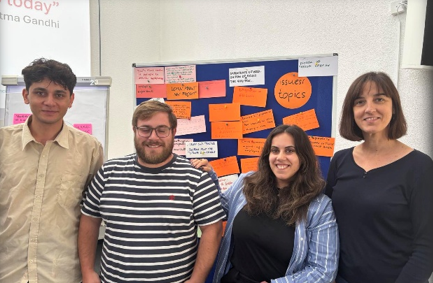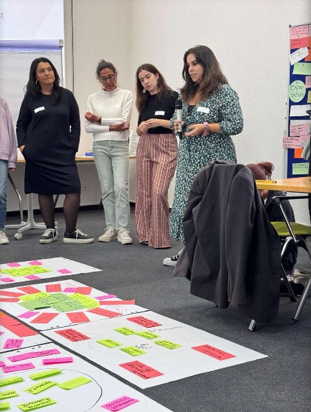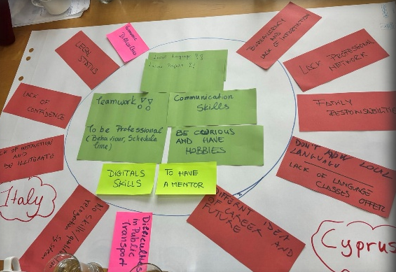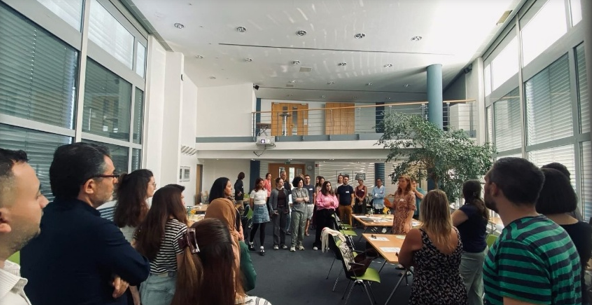GO2VET Kicks Off in Germany - A European Approach to Vocational Guidance and Refugee Integration
Panagiota Vetsa - Clinical Psychologist, MIC Nicosia
The first transnational meeting of the European project GO2VET was successfully held in Germany (01/09/2025-03/09/2025), bringing together partners from Germany, Greece, Cyprus, Spain, Italy, Sweden, and Belgium. The event was hosted by the IHK Institute (Industrie-und Handelskammer), one of Germany’s key institutions in vocational training and industry collaboration. The meeting focused on sharing methods, tools, and national strategies related to vocational guidance for refugees, highlighting how Germany approaches the integration of newcomers into education and employment.

At the heart of the discussions was the German dual system of vocational education and the role of IHK in facilitating access to training and the labour market. IHK not only certifies professional training but also provides guidance, connects young people and adults with training companies, and evaluates qualifications obtained abroad making it an essential bridge between education and employment, especially for those with migrant or refugee backgrounds.
One of the main topics of the meeting was the BOF programme (Berufliche Orientierung für Zugewanderte), which offers refugees the opportunity to explore different professions through hands-on workshops and short internships. The programme also provides targeted language support, particularly for technical terminology, and includes social-pedagogical services to ease the transition into training or work.

Throughout the meeting, several tools and practices were presented, such as skills assessment methods, individual counselling strategies, and best practices for integrating refugees into vocational training. Emphasis was placed on the need for customized, person-centred approaches that consider everyone’s educational background, language skills, and legal status.
As part of the visit, participants were invited to a local Multi-Service Centre, a place that offers a wide range of support services for refugees under one roof. These include legal advice, language classes, psychosocial support, job orientation, and assistance with bureaucratic processes. The centre exemplifies how municipalities in Germany are building integrated service models that combine public, social, and educational support structures.

The discussions highlighted several common challenges faced across Europe: the importance of professional language acquisition, the complexity of qualification recognition procedures, the limited access to practical training opportunities for refugees, and the need for long-term support structures that go beyond initial arrival.
However, it also became clear that there are numerous inspiring practices being implemented across different countries. Germany’s structured, hands-on vocational orientation system provides a valuable model, especially when combined with strong collaboration between education providers, businesses, and social services.

The meeting concluded with a strong sense of commitment from all partners to continue building tools and frameworks that will make vocational guidance for refugees more effective and inclusive. The GO2VET project will move forward with the development of pilot actions, training for professionals, and further exchange of knowledge between the participating countries.